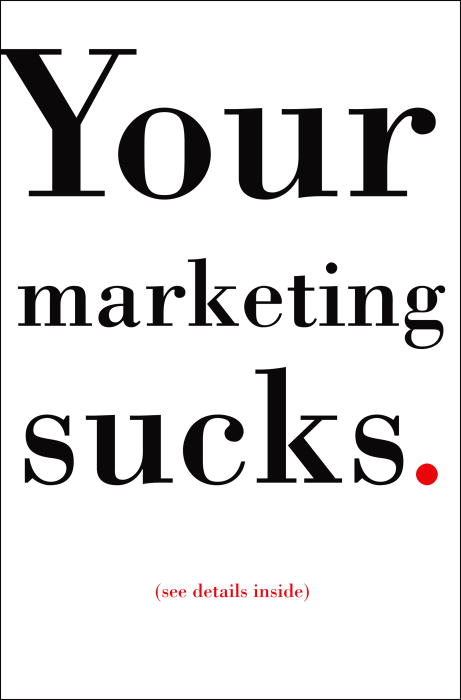"Your marketing sucks . . ."
What in the world does Mark Stevens mean?
For starters, let's take spending camouflaged as marketing. Everyone sees all those expensive, slick, pointless campaigns day after day. Just turn on your TV set and there are all the look-alike ads from Ford, GM, and Chrysler with look-alike cars going down . . . a road. Creative? Probably yes--nice scenery, good-looking people, etc., etc. But effective? Mark Stevens says absolutely not. Like you're going to spend $30,000 or more for the privilege of seeing a car go down . . . a road? Wouldn't it be easier for the Big Three in Detroit just to open the windows at their ad agencies and throw out gobs of thousand-dollar bills?
Don't get Mark Stevens started on marketing that sucks, or he might mention all those oh-so-cool people-in-black at the ad agencies developing campaigns that generate all kinds of buzz--in the advertising community. But not in the marketplace. (Oops.)
Note to advertisers from Mark Stevens: If you have an advertising agency that applies for any kind of an award (Clios, whatever), fire them immediately. They shouldn't be in the business to win ego awards for beautiful ads. They should be creating ads that sell. Period! If they talk about building "mind share," fire them immediately as well. That's just another way of saying they'll camouflage their failure to generate sales behind an intellectual smoke screen.
Mark Stevens is the best friend of anyone with a product or service to sell who wants to use marketing as a basis for growing the business. What he provides both entrepreneurs and Fortune 500 types is a hard-nosed, "prove it to me" program that demands accountability for every dollar spent on marketing so that it brings in more revenue or customers, preferably both. Use his program and you won't be throwing money out the window.
Your Marketing Sucks is chock-full of practical ideas such as:
Mark Stevens shows how to conceive an innovative, effective marketing campaign strategy--like Bill Gates's battle cry of "putting a computer on every desk and in every home"--and then monitor the results. The idea is to spend your marketing budget only in ways that will give you a measurable return on your marketing dollars. That's more than good marketing: It's how you grow a business. And that's what this book is all about!
From the Hardcover edition.



